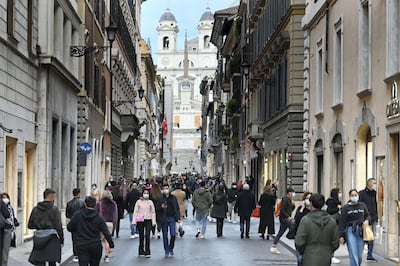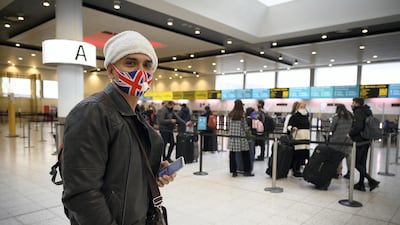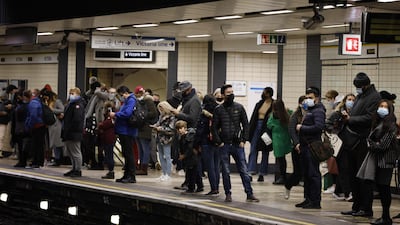Britain has urged people going overseas at Christmas to do their homework on coronavirus restrictions before leaving the country.
The warning came as tough curbs were imposed on most of England on Wednesday after the second lockdown ended.
Foreign Office minister Nigel Adams said it was vital people planned their travel before going abroad.
He said: “Coronavirus has fundamentally changed the way we travel, meaning it’s more important than ever to consider the need for a trip abroad and to be prepared.
“Different destinations may introduce new rules and restrictions with little notice as they respond to the pandemic, so it’s vital that people plan their travel and understand that disruption is possible.”
Here is a look at the key questions concerning travel:
Can I go overseas?
Yes. People living in England are permitted to travel overseas.
However, people in Tier 3 or very high alert areas are advised against leaving unless for work, education or caring responsibilities.
Similarly, people are advised against leaving Level 3 and 4 areas under Scotland’s alert system.
Travel out of Wales is only allowed under limited circumstances, such as for work or education.
Northern Ireland advises against any unnecessary travel.
How should I prepare for an overseas trip?
You are encouraged to monitor the Foreign, Commonwealth and Development Office (FCDO) website for updates ahead of your trip.
If a Covid-19 test is required before the trip, people should use private services to avoid putting pressure on the NHS.
People cannot travel with a person who is not a member of their household or support bubble.
While on the flight, face masks are compulsory except for when eating and people are advised to remain in their seat as much as possible.

While abroad, travellers are advised that local restrictions can change quickly, and border closures are possible.
“You may need to stay longer than you intended,” the FCDO warns.
What are the quarantine rules?
People should look up the quarantine rules for the destination they are travelling to.
In the UK, people arriving from countries on the safe travel list do not have to self-isolate, with the UAE among the countries exempt from quarantine arrangements.
However, people arriving from countries not on the list have to spend 14 days in quarantine. Harsh penalties apply for people who leave their home during temporary quarantine.
From December 15, people will be able to leave quarantine if they test negative from a private Covid test taken on the fifth day of isolation.
All arrivals will need to abide by the regional restrictions in place when in the UK.
What is happening in Europe?
The European Union has urged member countries to keep strong restrictions in place to avoid a post-holiday surge of coronavirus cases but has stopped short of advising against travel.
The European Commission said in non-binding recommendations published on Wednesday that easing pandemic-containment measures this month would jeopardise the efforts that have helped slow infections in recent weeks.
The commission, however, did not discourage tourism and cross-border travelling.
“Whilst travel itself is a risk factor, the generalised widespread transmission of Covid-19 across member states means that at present, intra-EU cross-border travel does not present a significant added risk,” it said.
Still, the commission “strongly discouraged” people with coronavirus symptoms from travelling and recommended vaccination against the season flu for travellers.
“Where possible, public transport options and capacities should be increased to reduce crowding, particularly on days or at times expected to be relatively busier to ensure social distancing,” it said.
“The use of masks should be compulsory in public transport, and all vehicles should be well ventilated.”










